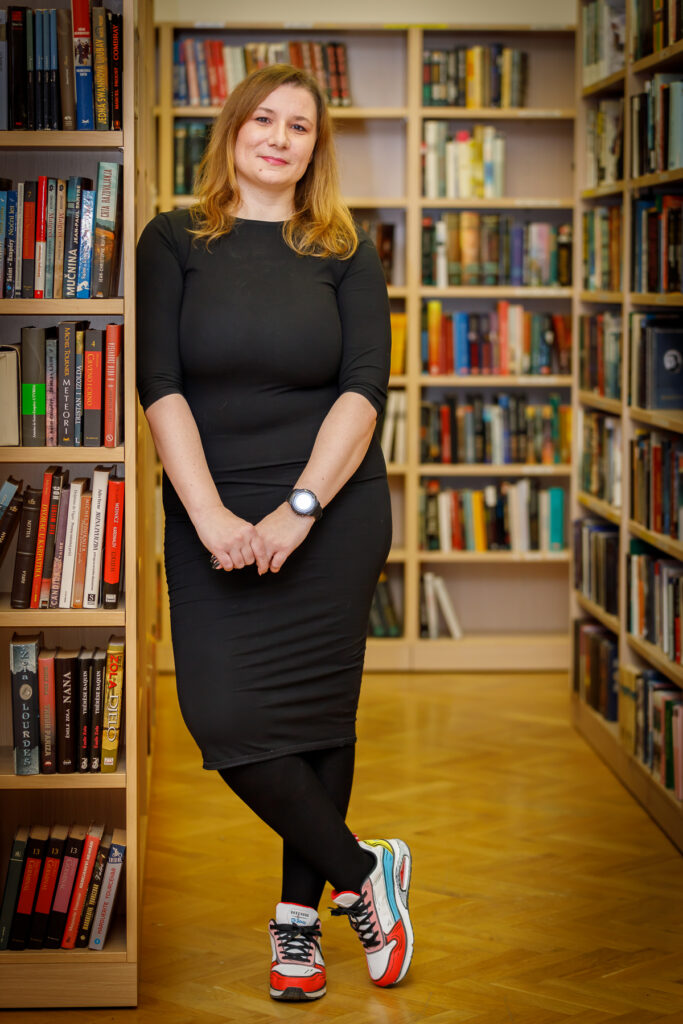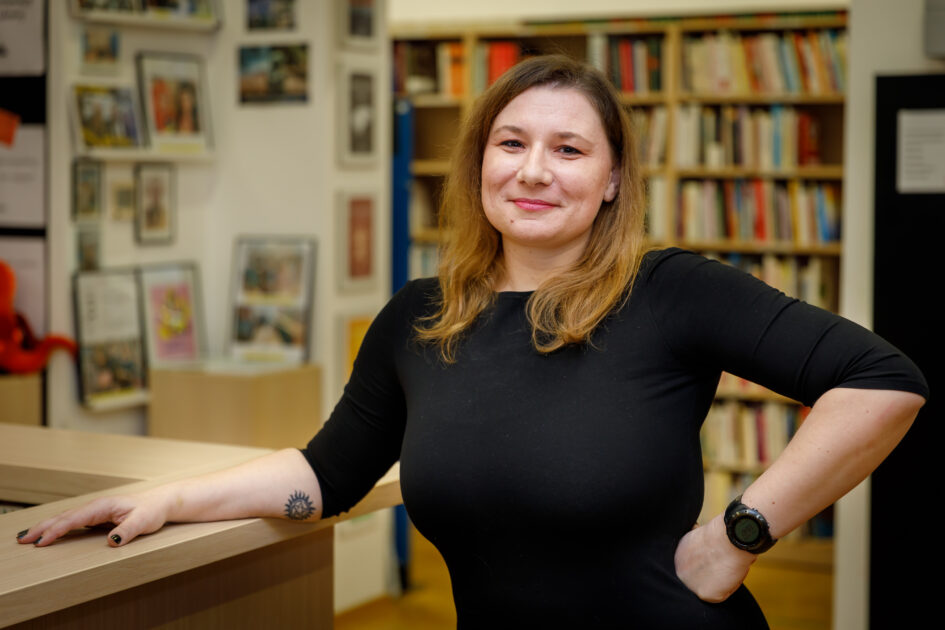World Rural Women’s Day was celebrated on October 15. From the NAPLE Sister Libraries program, we want to make visible the work of women professionals in rural libraries.
We celebrate the day through the rural libraries that are part of the program NAPLE Sister Libraries. Librarians work directly with the public in our communities, they know their needs and concerns, that is why librarians become a key agent in rural communities.
We have interviewed Maja Lesinger. She works in the Prelog Municipal Library (Croatia). It has been part of the program since 2017, and has established three sisterships. It is an active library that connects very well with its community as you can see through its blog posts.
We invite you to get to know Maja Lesinger and her work. Her testimony is motivating and inspiring
Could you please tell us about the specific features of the community you work for and how they affect your role as a librarian?
Knjižnica i čitaonica Grada Preloga – Prelog Municipal Library is a public library that, with its casual approach, enables users to have a pleasant stay in the library and offers numerous high-quality services. In 2017, the library was declared the Library of the Year by the Croatian Library Association, and in 2020 it won the EIFL award for innovation. The library offers numerous entertaining and educational programs for all ages and acquires the latest titles for all lovers of the written word.
This is our official description and it can be seen like we are bragging. We are and that is the point. We did all this because we have a community in which we could and did implement various innovative and outrageous (just kidding) programmes. Our community lets us be who and what we are because we let the be that as well. This mutual respect is the key to feeling free in your workplace.
I enjoy working for our small and tight community. It makes me happy to say hello to kids who shout my name and wave across the street because they liked the story I read to them couple of days ago. I feel proud when people brag about their library and tell other people how great our services are. It warms my hart when patrons enter our space and feel safe, calm and seen.
“You made my day! I had a terrible morning and didn’t want to come here. But now that I have, I’m glad because you made me smile!” (Patron)
This is why I love my job and this is why, even when I hate all the politics, paperwork, deadlines, dreary assignments and useless administration, I always do my best for my community.
I hate it when I can’t leave the work at work, and I get books handed to me in a shop, or people ask me to do something for them in my free time via private messages.
But that’s our community. Every medal has two sides – for every good side, there is a bad side. But good examples are more common than the bad ones. So I feel lucky and try to interpret what sometimes annoys me as a form of flattery.
“You can’t do anything without your local librarian, so you think of me even during the weekend?”
What are the most significant challenges you have faced as a rural librarian?
Mostly our challenges in the library are connected to resources. Whether it’s human or financial resources we always tend to learn how to work even without them. Our capacities are too small to get big projects and extra funding but we are very lucky that our Municipality supports our work and is willing to finance our needs as well as purchase of books.
As for human resources and helping hands, we depend heavily on our community and volunteers – sometimes it’s hard to find extra help. Also our public circle is very small and not all people read or are interested in our programmes. We see a decline in public visitations in general, not just in our library, but in all the cultural institutions in our town as well as our County.
Personally, my biggest challenge was to earn respect, trust and favour of our public. There are a lot of stereotypes surrounding librarians in general and in rural areas – our work description is very simple – we read books on the job and spend too much of public money playing with children and cutting out paper shapes. It was not easy, it was not fun and it was a long time process getting to the point where people know that as a librarian I really do work hard and try to make a difference in the community. When you become a rural librarian, that is a stigma you carry around with you. Changing people’s minds is difficult. I worked really hard on that for almost eight years. Showing it everywhere, telling, writing, taking photos and videos, doing social media campaigns etc. Advocating, just living the work itself to break the stereotype and to educate the community and stakeholders how hard we work and how wide our influence is.
What is the project you are proudest of as a rural librarian?
I am proud of all our projects. Most of our projects were realized by women and it is nice to see that we have that positive attitude towards each other. Women in our community hold places in different NGO’s and public institutions so we all come together to strategise, plan, develop and cooperate on various projects. It is a synergy of women in our community. That is the project I am proudest of.
In the context of the Rural Women’s Day, is there any claim or message you’d like to share as a librarian?
When you feel like you are defeated, find strength in other women. Having support when you feel alone and lost is worth more than gold.
What advice would you give to women librarians starting out in a rural library?
It doesn’t matter what, but who speaks to you. If you get criticised for your work, the critique will usually come from a person who is not relevant to your professional growth. But, you will be surrounded by such people – trust yourself. Seek out friends and associates in other rural libraries. Find a benchmark library, join a community like NAPLE Sister Libraries it will allow you to meet other professionals who also work in rural libraries and have understanding of your surrounding or share similar experience of what you are facing. Don’t be afraid to ask for help but also offer it yourself.


Leave a Reply